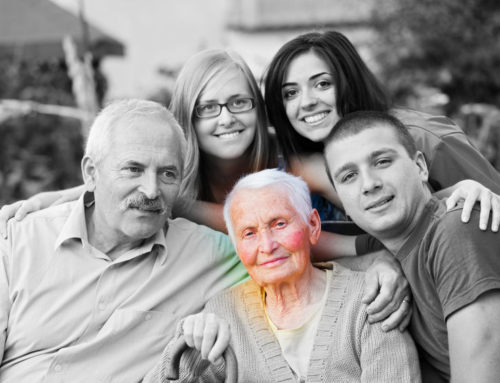As you spend more and more time treating a loved one—especially a family member—who’s been diagnosed with Alzheimer’s, you may begin to wonder whether or not you could potentially develop the disease. Such a question does, in fact, have a solid basis in reality, as medical researchers have identified a specific type of Alzheimer’s disease that occurs in individuals with family members who have (or who have had) the disease. As described by the American Health Assistance Foundation, Familial Alzheimer’s Disease (FAD) is “an inherited, rare form of the disease, affecting less than 10 percent of Alzheimer’s disease patients.” According to AHAF this particular and rare form of the Alzheimer’s develops before the age of sixty-five and even in individuals as young as thirty-five. Unfortunately, since researchers have identified this unique version of Alzheimer’s as hereditary, those individuals with FAD have a fifty percent chance of passing the disease onto his or her offspring—not good news for anyone with a relative who’s been diagnosed with FAD.
The good news, however, is that while medical researchers have identified FAD as a hereditary disease, other forms of Alzheimer’s—the more prevalent kinds, which are often late-onset—have not been linked to heredity. As such, while the diagnosis of a relative may spur valid concern for your health, you don’t necessarily need to live a life plagued with fear for what may happen. (After all, if you drive, then each time you leave your home to go to work or run errands, you run the risk of debilitating and even life-threatening automobile accident. Accordingly, you have no need to live in constant fear that you may one day end-up in an accident.) In sum, while the notion that Alzheimer’s can develop in individuals whose family members or other relatives have developed the disease, you should be careful not to let anxiety surrounding this concern dominate your life or take away from the valuable time you have with your loved one.





